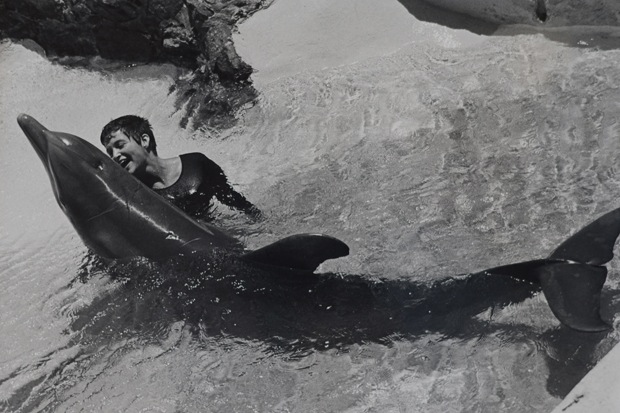There were 1,500 punters in the audience when Eagles of Death Metal played their fatal gig at the Bataclan theatre in Paris in November 2015. By midnight, every one of those fans would either be dead, bereaved, in hospital with gunshot wounds or so traumatised that the horror would haunt the rest of their lives.
But obviously none of them knew this when they woke up on that sunny autumn morning (though it was a Friday 13th). One remembers that his first thought that day was to make sure he wore some nice trousers. Another recalls being puzzled when his father — ‘a typical Chilean dad’ — embraced him, asked him anxiously where he was going that night (‘I’m 23!’) and then said what now sounds eerily prophetic: ‘No one can steal your soul.’ The son replied: ‘I’ll be careful.’
Actually, though, whether you lived or died was entirely a matter of luck. The band had just launched into one of their up-tempo crowd-pleasers ‘Kiss the Devil’ when in burst four Islamic terrorists and began spraying the packed audience with their AK-47s. As reality dawned and the band fled the stage, the crowd collapsed like dominos — some because they’d been hit, the rest because it seemed like their only chance of survival.
What everyone remembers was how loud and relentless the gunfire was. And also the intense smell — ‘iron blood and gunpowder’ — that stuck in your throat. No one dared move, except to hug themselves closer to their loved ones and, for self-protection, to bury themselves deeper into the growing mass of dead bodies.
Then the firing stopped — and for a moment, in the silence, it seemed as though there might be hope. But then there was a click, as one of the gunmen slotted another magazine into his automatic rifle. And the slaughter was resumed.
‘I’m not a believer, but if I were I know that this is what hell looks like,’ said one survivor. Another likened it to Dante’s Inferno. There came a point, after a while, when no one expected to get out alive. Those who tried to make a run for it were mown down near the (crowded, too narrow) exits. Those who lay on the floor were picked off, one by one, ‘like rabbits’, from the balcony. (Sometimes the trigger was when their mobile phones rang. ‘I was lucky. Mine was on vibrate,’ said a survivor.) One woman described that ‘existential moment where you know death is coming for you’, and the strange sense of peace this had brought her as she lay awaiting her fate.
These were some of the stories we heard from 40 eyewitnesses in November 13: Attack on Paris, a three-part Netflix documentary about the Islamic terror attacks in which 130 people were murdered. It was made by Gédéon and Jules Naudet, the French brothers who rose to fame in 2002 after making a similar film about the survivors of 9/11. Jules had been in New York working on a documentary about firefighters, and was with one of the first crews to arrive after the Twin Towers were hit. Their 9/11 experience left the brothers permanently marked. It was also, perhaps, why the Paris victims were prepared to open up to them.
Much of the testimony was almost unbearably harrowing, such as that of the French restaurant proprietor whose wife had died in his arms consciously holding back her pain and fear, he realised, because to the last ‘she did all she could not to scare me’; the young man — like so many of the survivors still wearing that empty, thousand-yard stare — who’d felt the hand of his wounded girlfriend, as he lay on top of her to protect her, grow cold and stiff. As Ian McEwan wrote after 9/11, quoting Larkin: ‘What will survive of us is love.’
What kept you watching — apart from the fact that it was more gripping than any scripted thriller — was the desperate hope that every account you heard would somehow, against the odds, end with a whole group getting away unharmed. Too often it didn’t. But there was one wonderful story about the people who escaped by punching a hole in a false ceiling and climbing on to the roof. One of their number was an overweight woman who found herself quite incapable of hauling herself up. Even though she was holding up those behind her, all expecting to die at any minute, no one grumbled or tried to push in front. They waited, putting their own lives at risk, till miraculously she made it up.







Comments